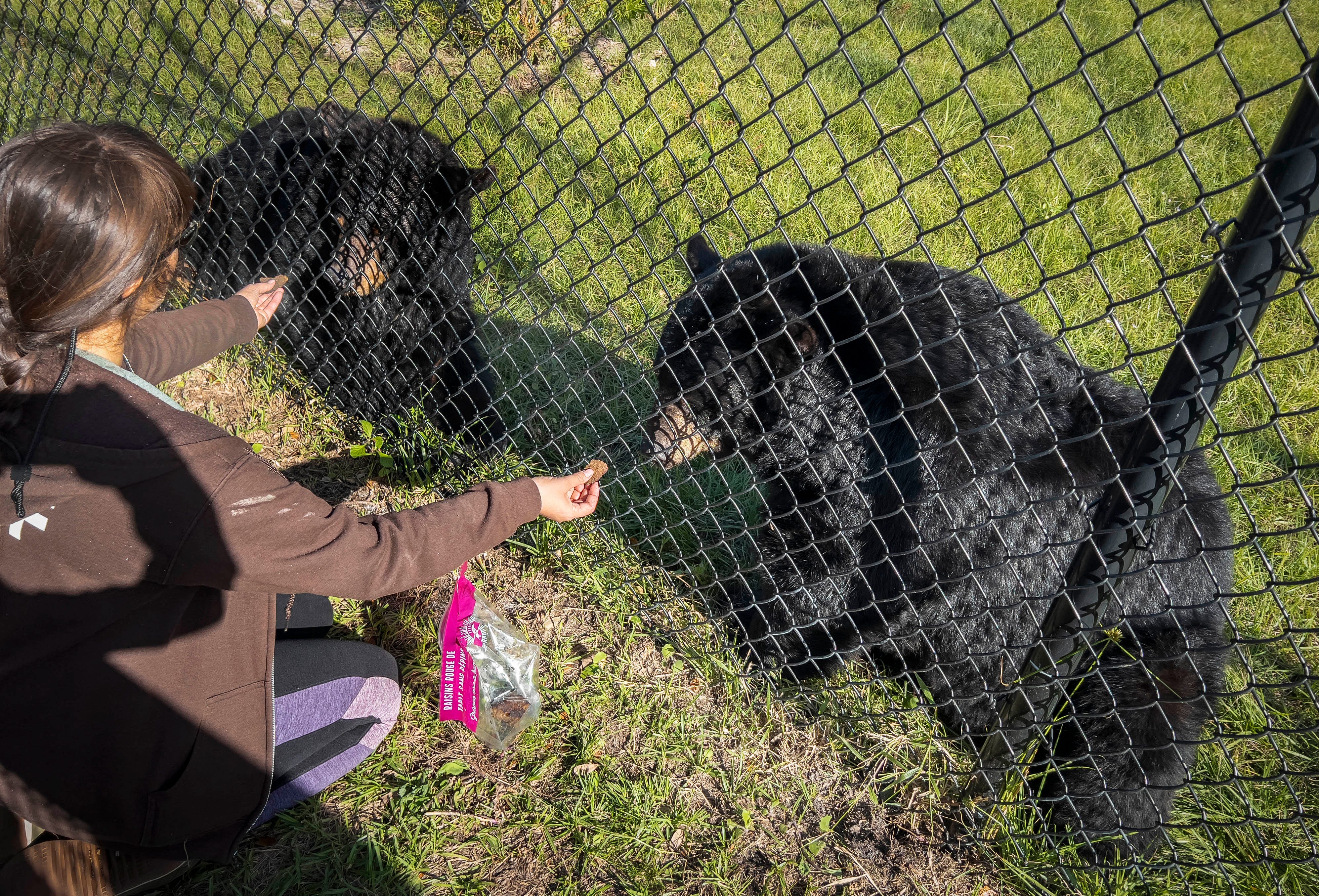
BUSCH WILDLIFE SANCTUARY MOVED TO JUPITER FARMS A YEAR AGO. WHAT CHANGED? WHAT'S AHEAD?
JUPITER FARMS — Busch Wildlife Sanctuary’s mewing, squawking and scuttling residents have had a busy year settling into their new home.
Last September, the animal rescue and rehabilitation sanctuary moved its alligators, bears, snakes, eagles and more Floridian animals about five miles west of its longtime Jupiter home to nearly 20 acres in Jupiter Farms.
The $18 million complex at Rocky Pines and West Indiantown roads is triple the size of its former location off Central Boulevard, where the nonprofit spent 25 years. Amy Kight, its executive director, said the space has helped the sanctuary grow.
“I had this concern of, ‘Is anybody going to show up?’ But people have been so incredibly supportive,” Kight said. “We are a victim of our own success.”
How north county is growing: Barnes & Noble to open in bookshop paradise of retirees, families
Some days, parking fills up before the sanctuary opens. Kight then tells people not to park on the side of the road where it isn’t permitted, but “it’s a good problem to have,” because more people are visiting, she said.
What were Busch Wildlife Sanctuary's biggest challenges in its new home?
Most of the animals handled the move well, but a few that Kight didn’t expect to have problems with took longer to get accustomed to.
One was an 11-year-old raccoon named Friendly, who got his name for his carefree demeanor. It took him the longest to adjust, but he is finally comfortable in his new enclosure, more than double the size of his last one.
Another challenge has been a lack of shade. The last campus had towering trees, but most at the new location are small because they were just planted. Still, Busch Wildlife has planted more than 7,000 trees over the past year, including large live oaks and gumbo limbos. Neighbors have donated trees from their backyards, too.
“I’m asking people for grace,” Kight said. “There was a lot of time for trees to grow at our old location. The new trees are going to take time.”
Crews will begin to install shade structures throughout the property in mid-September.
Busch Wildlife settles in: More than a zoo: Busch Wildlife Sanctuary grows into its larger campus in Jupiter Farms
More changes are coming: Here's what Busch Wildlife Sanctuary has in store
Busch Wildlife hired its first full-time veterinarian in July, which Kight said has been “game-changing” after only having volunteer veterinarians. It has also hired more education, hospital, maintenance and landscaping staff members this year, growing to 34 employees and at least 100 volunteers.
The center took in about a dozen permanent animal residents in its first year in Jupiter Farms, from a mountain lion named Charlie to a sandhill crane named Gary, a juvenile pelican named Beans and two Virginia opossums named Rihanna and Simone, among others.
Crews installed pools for the otters, black bears and water birds and remodeled the bald eagle enclosure. Staff members have also curated native bird and pollinator gardens to attract more bees and birds.
The sanctuary added a playground this winter just behind the bird enclosures. It also created a “discovery center” to educate visitors about Busch Wildlife's mission to rescue, rehabilitate and release the animals it treats back into the wild.
Staff members are now putting more of an emphasis on wellness classes for volunteers and visitors. Visitors can now take tai chi, yoga and core aerobics classes at its amphitheater for a fee.
“We are trying to get people to see how being outside, grounding themselves and being around trees, animals and like-minded people can help their physical and mental wellbeing,” Kight said.
Mountain lion escapes illegal pet trade: Busch Wildlife's latest addition escaped the illegal pet trade and greets you with a 'Meow?'
What’s ahead in year two? Busch Wildlife hopes more adults visit sanctuary
Two new enclosures, both for birds, will soon rise at the center’s 5-acre rehabilitation area at the north end of the site, which is not open to the public. While the timeline for construction is still under review, Busch Wildlife staff members have started the process of obtaining permits from Palm Beach County.
One will be an enclosure where birds will learn to eat on their own again and get their feathers back after being in intensive care. The other will be a flight complex where birds would go next. This is where they would exercise their wings and do physical therapy after surgery.
The mountain lions might get a pool in January, Kight said. Busch Wildlife also plans to start a veterinarian externship program next year to offer wildlife-veterinarian board certifications and training.
A $9 million construction loan follows the sanctuary into its second year at Jupiter Farms. Kight said her biggest wish is to get enough donations to pay it off.
“If we had some amazing individual pay off that loan, they can name (the sanctuary) after whatever they want,” Kight said. “That’s a bargain compared to what other facilities ask for naming rights.”
As Busch Wildlife grows, she wants adults to embrace it as much as kids. The sanctuary hosts Halloween events, yoga classes and Wine in the Wild, the sanctuary's biggest fundraiser of the year, to encourage adults to visit more.
“We consistently hear this wonderful compliment of, ‘I took my kids here all the time when they were little,’ ” Kight said. “I ask, ‘Why’d you stop?’ and they say, ‘They grew up.’ Well, we’re still here. Come back.”
Maya Washburn covers northern Palm Beach County for The Palm Beach Post, part of the USA TODAY Florida-Network. Reach her at [email protected]. Support local journalism: Subscribe today.
This article originally appeared on Palm Beach Post: Busch Wildlife Sanctuary moved to Jupiter Farms a year ago. What changed? What's ahead?
2024-09-13T09:08:35Z dg43tfdfdgfd